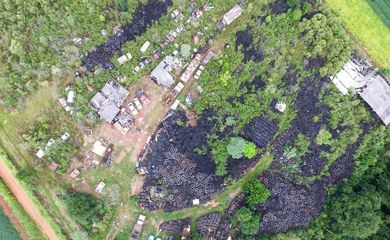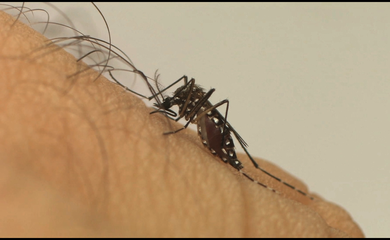Mobilization against Aedes aegypti reached 428 towns and 2.8 million homes




The National Day of Mobilization against the Aedes aegypti on Saturday (Feb. 13) reached 428 municipalities and 2.865 million households have been visited.
The National Day of Mobilization against the Aedes aegypti on Saturday (Feb. 13) reached 428 municipalities and 2.865 million households have been visited. Of this total, 295,000 houses were closed and the soldiers were not allowed to get in 15,000 houses. The balance report on the mobilization was announced Monday (Feb. 15) by Health Minister Marcelo Castro.
According to him, 220,000 members of the Armed Forces, 46,000 officials fighting outbreaks and 266,000 community health workers took part in the mobilization.

Defense Minister Aldo Rebelo, Chief of Staff Jaques Wagner, Health Minister Marcelo Castro, and Chief of the Joint Staff of the Armed Forces Ademir Sobrinho, during the ceremony to deliver balance reports on the mobilization against the Aedes aegypti
"The operation was taken by the federal, state, and municipal governments. All united despite the political parties, whether from the ruling government, left-wing parties, they all understood that the mosquito is not a municipal, nor a state issue, it is a issue for all, [the mosquito] is not leftwing, nor rightwing, not opposition, nor government. This is a joint action taken by all the country's officials and by the whole society. It was a very important day due to this action performed by all levels, showing the national unity—from the municipality to the federal government," said Castro.
Next actions
From this Monday (Feb. 15) to Thursday (Feb. 18), 55,000 trained soldiers will travel around 270 towns throughout the country for the third stage of the operation to fight against the Aedes aegypti. During this stage, the Armed Forces will act directly in order to eliminate the mosquito's breeding sites and they will also apply larvicides and insecticides, monitored by health workers. The mosquito transmits dengue, chikungunya, and Zika virus.
From February 19 to March 4, the actions will be carried out in schools, in a partnership between the Defense Ministry and the Education Ministry. Military will visit private and public schools, in addition to universities, in order to provide students with information.
International emergency
Earlier this month, the World Health Organization (WHO) declared the Zika virus an international emergency for the public health due to the rise in microcephaly cases linked to the Zika infection.
Zika virus' main symptoms are headache, low-grade fever, mild joint pain, skin rashes, itching and redness in the eyes. However, the major concern is the link between Zika and the microcephaly cases reported in babies.
Translated by Amarílis Anchieta
Fonte: Mobilization against Aedes aegypti reached 428 towns and 2.8 million homes



